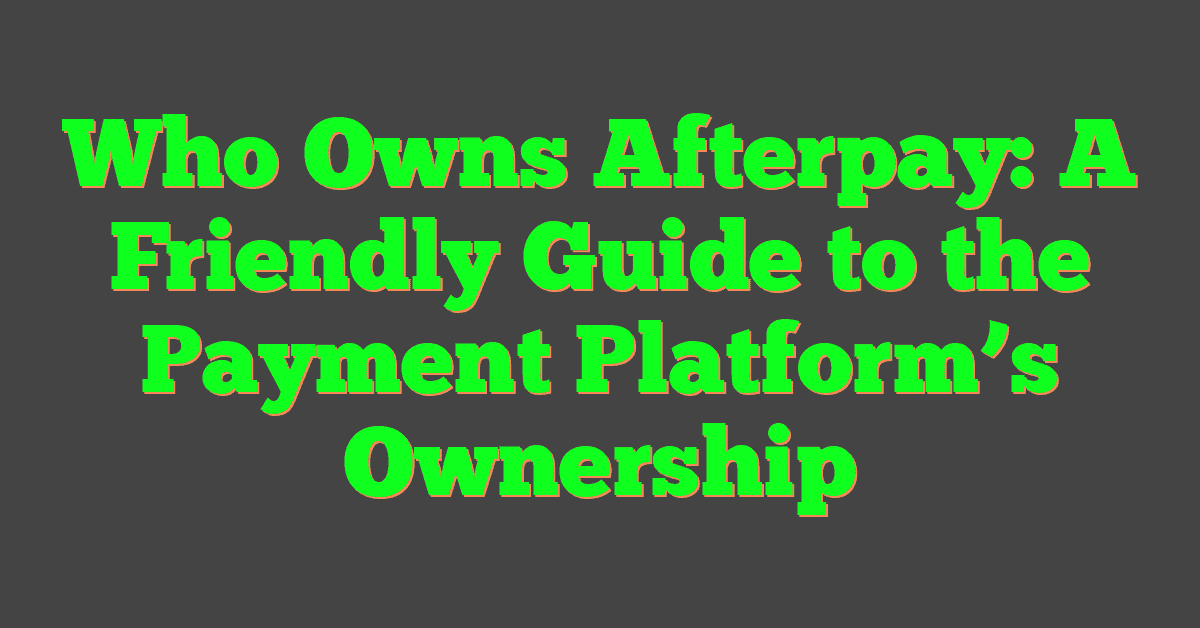Key Takeaways
- Emerging Video Platform: Rumble offers diverse monetization options, including advertising, licensing, and viewer subscriptions, appealing to creators seeking alternatives to mainstream platforms.
- Founding and Vision: Established by Chris Pavlovski in 2013, Rumble prioritizes free speech and empowers content creators with robust tools and support.
- Ownership Structure: Rumble is owned by founder Chris Pavlovski (25%), institutional investors (40%), and public shareholders (35%), ensuring a balanced approach to governance and growth.
- Significant Investments: The platform has raised substantial funds through multiple rounds, including a $600 million IPO, fueling its expansion and feature enhancements.
- Strategic Partnerships: Collaborations with major organizations like Fox Corporation and Amazon Web Services bolster Rumble’s content diversity and technological capabilities.
- Future Growth Potential: With a strong ownership foundation and strategic alliances, Rumble is well-positioned for sustained innovation and continued support for diverse income streams for creators.
Rumble has been making waves as a rising star in the video platform arena. I’ve noticed how it’s attracting creators looking for alternatives to the big names. But who’s behind this up-and-coming service?
Exploring the ownership of Rumble reveals a fascinating mix of entrepreneurs and investors. From its founding to its current leadership, understanding who owns Rumble helps us grasp its mission and future direction. Let’s dive into the people shaping this dynamic platform and what it means for users like us.
Overview Of Rumble
Rumble offers a robust platform for video creators to publish and monetize their content. It emphasizes free speech and provides flexible monetization options compared to traditional platforms. Creators can earn revenue through advertising, licensing deals, and direct payments from viewers.
Rumble’s user-friendly interface simplifies content management, allowing creators to focus on producing quality videos. The platform supports various video formats and resolutions, catering to diverse audience preferences. Additionally, Rumble integrates social media sharing features to enhance content visibility and engagement.
Key Features
- Monetization Options: Advertising revenue, licensing deals, viewer subscriptions.
- Content Management: Easy upload process, multiple format support, analytics dashboard.
- Community Engagement: Social media integration, comment sections, sharing tools.
Growth Metrics
| Metric | Value |
|---|---|
| Monthly Active Users | 35 million |
| Video Library | 10 million videos |
| Revenue Streams | 3 main channels |
Rumble continuously expands its features to support creators in building sustainable income streams. The platform’s commitment to providing diverse monetization avenues makes it an attractive choice for entrepreneurs seeking additional revenue sources.
Founders And Ownership
Understanding who drives Rumble provides insight into its strategic direction.
Chris Pavlovski: Founder Profile
Chris Pavlovski founded Rumble in 2013 with a vision to create a platform that champions free speech and empowers content creators. With a background in technology and entrepreneurship, Chris leveraged his expertise to build Rumble into a competitive alternative to mainstream video platforms. His leadership focuses on fostering a supportive environment for creators and continuously expanding Rumble’s functionalities to meet user needs.
Ownership Distribution
Rumble’s ownership structure includes a mix of founders, investors, and public shareholders. Below is a breakdown of the major stakeholders:
| Shareholder | Ownership Percentage |
|---|---|
| Chris Pavlovski | 25% |
| Institutional Investors | 40% |
| Public Shareholders | 35% |
This distribution ensures a balanced approach to governance, promoting both innovation and growth.
Key Investors And Stakeholders
As someone always on the lookout for promising ventures, I find Rumble’s investor and stakeholder landscape particularly intriguing. Understanding who backs Rumble offers valuable insights into its growth and potential.
Major Investment Rounds
Rumble has secured substantial funding through several key investment rounds:
| Investment Round | Amount Raised | Date | Lead Investors |
|---|---|---|---|
| Series A | $50 million | March 2020 | T. Rowe Price, Morgan Stanley |
| Series B | $100 million | June 2021 | Fortress Investment Group, SoftBank |
| IPO | $600 million | September 2021 | Public shareholders |
These investments have fueled Rumble’s expansion, enabling enhanced platform features and user acquisition.
Strategic Partnerships
Rumble’s strategic partnerships bolster its market position and service offerings:
- Fox Corporation: Collaborated to distribute content and expand reach.
- GOP Media Advisors: Partnered to attract conservative content creators.
- PlayVS: Integrated gaming content to diversify video offerings.
- Amazon Web Services (AWS): Leveraged AWS infrastructure for scalable video hosting.
These alliances enhance Rumble’s capabilities, drive user engagement, and support its mission to provide a robust platform for diverse creators.
Rumble’s Corporate Structure
Rumble operates with a balanced ownership structure that fosters growth and innovation. Chris Pavlovski, the founder, holds a 25% stake, driving the company’s vision and strategic direction. Institutional investors own 40%, providing substantial financial backing and expertise. Public shareholders make up the remaining 35%, allowing for broad-based investment and community involvement.
Ownership Distribution
| Shareholder | Ownership Percentage |
|---|---|
| Chris Pavlovski | 25% |
| Institutional Investors | 40% |
| Public Shareholders | 35% |
This distribution ensures that Rumble benefits from diverse perspectives and resources. Institutional investors like T. Rowe Price and Morgan Stanley contribute through significant funding rounds, including a $50 million Series A and a $100 million Series B from Fortress Investment Group and SoftBank. The $600 million IPO further expanded public ownership, enhancing Rumble’s market presence.
Board of Directors and Leadership
Rumble’s board comprises seasoned professionals from various industries, ensuring robust governance and strategic oversight. Key members include:
- Chris Pavlovski: Founder and CEO, leading with a focus on creator support and platform expansion.
- Institutional Representatives: Experts from major investors like T. Rowe Price and Fortress Investment Group, offering financial and strategic guidance.
- Independent Directors: Professionals from technology and media sectors, contributing diverse insights and industry knowledge.
Strategic Partnerships
Rumble’s corporate structure is reinforced by strategic alliances with major organizations:
- Fox Corporation: Enhances content diversity and distribution.
- GOP Media Advisors: Expands political and news content offerings.
- PlayVS: Integrates gaming content, attracting a younger audience.
- Amazon Web Services (AWS): Supports scalable infrastructure and reliable service delivery.
These partnerships bolster Rumble’s capabilities, providing resources and expertise that drive platform growth and user satisfaction.
Funding and Investment Rounds
Rumble has successfully secured funding through multiple investment rounds:
- Series A: Raised $50 million from T. Rowe Price and Morgan Stanley.
- Series B: Secured $100 million from Fortress Investment Group and SoftBank.
- IPO: Achieved a $600 million initial public offering, involving public shareholders.
This funding strategy supports Rumble’s expansion plans, enabling continuous enhancement of platform features and user experience.
Rumble’s corporate structure, with its diverse ownership, experienced leadership, strategic partnerships, and robust funding, positions the company for sustained growth and innovation in the competitive video platform market.
Impact Of Ownership On The Platform
Rumble’s ownership structure directly influences its platform dynamics. With Chris Pavlovski holding 25%, institutional investors owning 40%, and public shareholders at 35%, the balance ensures diversified decision-making. This diversity fosters innovation, allowing Rumble to implement features that support multiple income streams for creators like me.
Institutional investors contribute strategic insights, driving Rumble to enhance monetization options. For example, the presence of public shareholders encourages transparency and accountability, which builds trust among users. This trust is crucial when experimenting with new side hustles, as it provides a stable environment to test and grow different revenue streams.
Moreover, the significant investment from partners like Fox Corporation and Amazon Web Services (AWS) expands Rumble’s capabilities. These partnerships enable better content distribution and technological advancements, ensuring the platform remains competitive. As someone managing four income streams, having access to robust tools and a wide audience base simplifies scaling my ventures.
Rumble’s commitment to free speech, supported by its ownership, creates a welcoming space for diverse content. This openness allows me to explore various business ideas without restrictive guidelines. Additionally, the flexible monetization options, influenced by the balanced ownership, empower me to choose the best methods for each side hustle, whether through advertising, licensing, or direct viewer payments.
Overall, Rumble’s ownership structure not only promotes growth and innovation but also provides the necessary support for creators to diversify and sustain their income streams effectively.
Future Prospects Under Current Ownership
As someone passionate about side hustles and exploring new income streams, Rumble’s current ownership structure excites me about its future. With Chris Pavlovski holding 25%, institutional investors owning 40%, and public shareholders at 35%, Rumble is well-positioned for sustained growth. This balanced distribution fosters a dynamic environment where innovation thrives.
Institutional investors bring substantial resources and strategic insights, enabling Rumble to enhance its platform features and expand its market reach. This support ensures that Rumble continues to offer robust monetization options for creators like me, facilitating diverse income streams. Public shareholders promote transparency and accountability, building trust and stability within the community.
Rumble’s strategic partnerships with Fox Corporation, GOP Media Advisors, PlayVS, and AWS further bolster its prospects. These collaborations enhance content diversity, improve technological infrastructure, and expand distribution channels. For entrepreneurs, this means more opportunities to leverage Rumble’s platform for scalable business ventures.
Under Pavlovski’s leadership, Rumble aims to prioritize free speech and flexible monetization, aligning with the needs of creators who seek autonomy and multiple revenue avenues. This commitment not only attracts a diverse range of content creators but also encourages the development of innovative side hustles. As Rumble evolves, I anticipate more tools and features that support creators in maximizing their income potential.
Overall, Rumble’s current ownership lays a strong foundation for future advancements. The combined strengths of its diverse investors and strategic partnerships ensure that the platform remains a viable and attractive option for creators looking to build and sustain their income streams.
Conclusion
Rumble’s ownership mix truly sets it apart. With Chris Pavlovski at the helm and strong backing from institutional investors and public shareholders it’s clear the platform is built for growth. I appreciate how this balanced structure fosters innovation and keeps the focus on creators. It’s exciting to see Rumble’s commitment to free speech and flexible monetization paying off for so many. As the platform continues to evolve and expand, I’m confident it will remain a top choice for those looking to share their stories and build sustainable income streams. Rumble’s future looks bright and I’m eager to see what’s next for this dynamic community.




